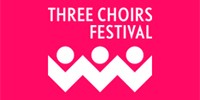
 United Kingdom Three Choirs Festival (9) – Gurney, Matthew Martin, Finzi: Marcus Farnsworth (baritone), James Baillieu (piano), St Barnabas’ Church, Tuffley, Gloucester, 27.7.2016. (RJ)
United Kingdom Three Choirs Festival (9) – Gurney, Matthew Martin, Finzi: Marcus Farnsworth (baritone), James Baillieu (piano), St Barnabas’ Church, Tuffley, Gloucester, 27.7.2016. (RJ)
Gurney: Lights Out (poems by Edward Thomas)
Matthew Martin: Sonnets of Petrarch (premiere)
Finzi: Earth and Air and Rain (poems by Thomas Hardy)
This recital bore the snappy title Gloucester Lads, which was a trifle misleading. Ivor Gurney, of course, was very much a Gloucester lad, born and bred in the city, and Matthew Martin hails from nearby Cheltenham. But Finzi was a Londoner who came to live in the county and was a regular visitor to the Three Choirs Festival. The writer/poet Edward Thomas also came from the metropolis in the years before World War I to settled in Dymock.
Poems by Thomas were the inspiration for the song cycle Lights Out composed during 1919, one of Gurney’s most creative periods. Marcus Farnsworth succeeded well in expressing the sense of chill and sadness in the first song, The Penny Whistle, which was followed by Scents, evocative and comforting, though tinged with the sadness of a robin singing in the winter. Bright Clouds was a more carefree affair with a flowing piano accompaniment from James Baillieu which was superseded by the reflective Lights Out – “I have come to the borders of sleep, the unfathomable deep forest where all must lose their way”. Will you come? has a sense of urgency in which the singer implores his beloved to be at his side and the cycle ends with a more robust song, The Trumpet, which celebrates the dawn and calls on people to put the night behind them and prepare for new challenges.
Marcus Farnsworth has been making waves in the musical world since winning the 2009 Wigmore Hall International Song Competition and the Song Prize in the 2011 Kathleen Ferrier Competition. He has also made some useful friends along the way, such as the composer Matthew Martin whose setting of three Sonnets by Petrarch he premiered at this recital. The central theme is the poet’s love for Laura, and the first of the three A pie’ de’ colli ove la bella vesta had a brooding, serious tone which becomes darker as the poet reflects that the only solace is death. Piovanmi amare lagrima dal viso begins with some striking chords on the piano and is more operatic in scope expressing anguish and suffering. In the final sonnet Occhi miei lassi, mentre ch’io vi giro one can hear the tears dropping in the piano accompaniment and the poem ends wistfully and calmly with the words “take to the end now brief comfort from such long suffering”. This was an intelligent, sensitive first performance from Farnsworth and Baillieu which reached to the very soul of the well-crafted work.
Finzi’s Earth and Air and Rain, settings of poems by Thomas Hardy, completed the programme. Marcus Farnsworth began with the genial Summer Schemes, and then put some spring in his step for When I set out for Lyonesse. A high sense of mystery was created in The Phantom Horsewoman with its strong ending, while the bouncy Rollicum-Rorum injected fun into the proceedings. In To Lisbie Browne the problem of unrequited love was starkly expressed, and there was high drama in The Clock of the Years, sometimes regarded as a mini-cantata. The cycle ends in philosophical mood with In a churchyard and Proud Songsters, as the poet reflects that the singing bird were once but particles of grain, earth, air and rain.
This was a fine performance by a well matched and talented pair of musicians which gave the audience plenty of thoughts to ponder on.
Roger Jones